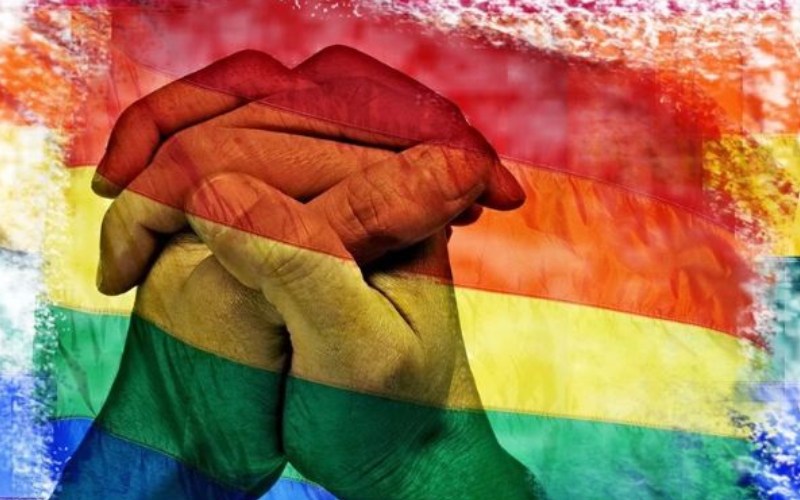Dipika Thakur is an impassioned and committed young leader who proudly identifies as transgender. Over the span of 14 years, she has dedicated herself to championing community health and rights. Starting her journey at the grassroots level, Dipika has risen to a prominent national role within Alliance India. Presently, she holds the position of National Program Officer for Advocacy & Training at Alliance India. Dipika’s remarkable efforts have positively impacted countless lives, facilitating employment opportunities and fostering dignity. Her impactful work has garnered her multiple accolades, and she holds a postgraduate degree while actively advocating for gender equality.
In an insightful conversation with The Interview World, Dipika Thakur delves into the complex impacts of mental health, addresses societal attitudes towards supporting transgender individuals, provides detailed insights into government initiatives such as legal provisions, and outlines her own efforts towards promoting transgender education and fostering inclusion in society. Below are the highlights from her interview.
Q: What are the multifaceted effects of mental health on both individuals and society as a whole?
A: Students grappling with mental health issues often find themselves at risk of dropping out of education, as the burden of academic pressure exacerbates their struggles. Furthermore, the intense competition and expectation to secure employment post-graduation can weigh heavily on their shoulders. For those who do not succeed in their initial job pursuits, the sense of failure can be overwhelming, leading to despair and, tragically, even thoughts of suicide.
Similarly, entrepreneurs facing setbacks in their ventures may find themselves battling mental health challenges. The stress of financial instability and the fear of failure can take a significant toll, prompting some to abandon their business aspirations altogether. As a result, mental health concerns permeate every aspect of an individual’s life, affecting their overall well-being and decision-making processes.
Within the transgender community, the impact of mental health issues is particularly acute. Many individuals resort to substance abuse as a coping mechanism, further exacerbating their health and lifestyle challenges. Additionally, societal stigmatization and lack of support often leave them marginalized and struggling to access essential resources for livelihood and healthcare.
Moreover, hormone replacement therapy, a crucial aspect of transgender healthcare, can inadvertently lead to health complications such as cancer and bone density issues. The intersection of mental and physical health challenges underscores the urgent need for comprehensive support systems within the community.
In light of these multifaceted challenges, colleagues, families, and society at large must extend understanding, empathy, and robust mental health support to individuals in need, particularly within marginalized communities like the transgender population. Such collective efforts are essential in fostering inclusivity, resilience, and holistic well-being for all.
Q: What is the societal response to the support for transgender individuals?
A: At present, there’s a noticeable divergence in attitudes towards transgender individuals. While newer college students exhibit some degree of support, a stark contrast emerges from the older generation, including parents, society, aunts, and uncles. These individuals seem to hold onto outdated psychological constructs regarding transgender people, possibly stemming from beliefs entrenched in the 70s or 90s. Consequently, navigating acceptance and support from this demographic proves challenging for transgender individuals. The generational gap in understanding and empathy exacerbates the struggle for recognition and inclusion within broader societal frameworks. This highlights the ongoing need for education and advocacy to foster greater acceptance and support across all age groups.
Q: What programs or activities can effectively empower transgender individuals and facilitate their integration into mainstream society?
A: The Ministry of Social Justice and Empowerment has taken significant strides in promoting transgender rights through its sensitization program. This initiative aims to raise awareness and foster understanding about transgender issues within society. Additionally, the government has enacted the Transgender Persons (Protection of Rights) Act, 2019, as a legal framework to safeguard the rights and interests of transgender individuals.
Despite these commendable efforts, there remains a glaring disparity between the existence of these programs and their effective implementation across various sectors. Colleges, government hospitals, societies, and law colleges are yet to fully embrace and integrate these initiatives into their systems and practices.
Recognizing the importance of education in fostering inclusivity, the government has emphasized the incorporation of transgender awareness into the education system. Similarly, it has underscored the necessity of extending support and services to transgender individuals in healthcare settings, ensuring their access to quality healthcare services.
Moreover, the government has highlighted the significance of creating inclusive spaces for transgender individuals, including community halls where marriages occur. These efforts are crucial for fostering an environment where transgender individuals can live with dignity and respect, free from discrimination and marginalization.
However, despite these directives and legislative measures, the actual implementation of these policies remains a challenge. Bridging this gap requires concerted efforts from all stakeholders, including government bodies, educational institutions, healthcare providers, and civil society organizations.
As part of this collective endeavor, I am actively involved in conducting sensitization programs through the National Institute for Social Defence (NISD). These sessions target a wide range of stakeholders, including the police, college students, professors, teachers, district magistrates, elected officers, and their staff members. My engagements have already included productive sessions with these groups, contributing to the broader goal of promoting transgender rights and inclusion in society.
Q: What initiatives are you taking to promote transgender education and inclusion?
A: Educating college professors and teachers about the Transgender Persons (Protection of Rights) Act is paramount. This legislation safeguards the rights and dignity of transgender individuals, necessitating a comprehensive understanding and implementation within educational institutions. One crucial step towards achieving this is to involve students in the process. By doing so, we ensure that they are aware of their rights and the avenues for seeking redressal in case of discrimination or harassment. Designated complaint officers, principals, and teachers must exhibit sensitivity towards transgender identities and related issues.
This ensures a supportive and inclusive environment where all students, regardless of gender identity, feel safe and respected. By fostering such an environment, we not only uphold the principles of equality and human rights but also contribute to the well-being and prospects of transgender students. Their security and success hinge on the proactive efforts of educators to create an inclusive educational landscape.



